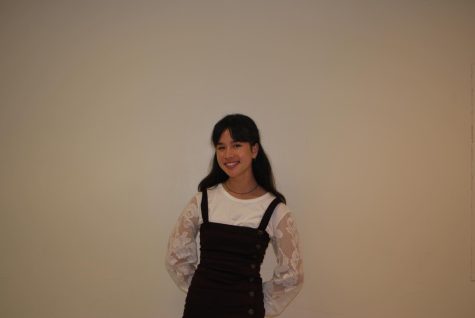NC implementing new AP Mentoring Program
Equity, Belonging Committee begins study-hall tutoring
November 7, 2022
Sophia Dike ‘23 recalled her need for a better support system regarding Advanced Placement (AP) classes since her freshman year. In addition to the challenges of taking higher-level courses amid COVID-19, she was unable to find enough help for her AP classes during her junior year.
“It was just rough,” Dike said. “[AP] Physics, [English Language and Composition], and [AP United States History] are all normal to take [during] junior year but with no support.”
The new program for AP tutoring in study hall rooms is available during lunch periods (4A, 4B, 5A, and 5B). This intends to strengthen studying skills that have generally been weakened due to online learning.
“When we came back last year, it was just a drastic change of ‘Okay you have to have all of these studying habits,’” Olivia Guerra ‘23 said. “You have to go through [constant] testing and checking, and when you have someone helping you, you don’t have to worry about overdoing it.”
Specifically pertaining to the Equity and Belonging Committee, Director of Equity & Belonging Jennifer Rowe is passionate about having more students of color enrolled in AP classes, Dike said. An AP luncheon was held last year to partly address this; it was aimed at juniors who had not yet taken an Advanced Placement class. The student luncheon encouraged more students to register for AP classes.
“After I sat in a room [where the luncheon was held], I was just thinking that we don’t have any support for students in general for those classes,” Dike said. “We [seniors] decided to tutor mostly juniors in study hall to help with past AP classes [we took].”
The program was developed through summer meetings among Equity Committee members, discussing inclusion and course rigor, Dike said. Additionally, members noticed a lack of assistance and direction during study hall time to combat difficult classes.
The Equity Committee also focused on pairing seniors to study hall rooms that could potentially have a higher level of students seeking help.
“Wednesdays I go in for physics help [to tutor],” Dike said. “It’s in a physics room, with a physics teacher, and most kids take physics, so it’s almost made for them in particular.”
Although the program has recently started, the Equity Committee intends to grow the number of tutors to eventually have the program available for students at SC. Currently, the program is aimed toward AP classes taken during junior year.
“It just needs a little bit of time to let people know that it’s happening, and the recourse for AP help is out there,” Dike said.





















![Movie poster for '[Rec]" (2007).](https://www.lionnewspaper.com/wp-content/uploads/2023/04/rec-640x900.jpg)


